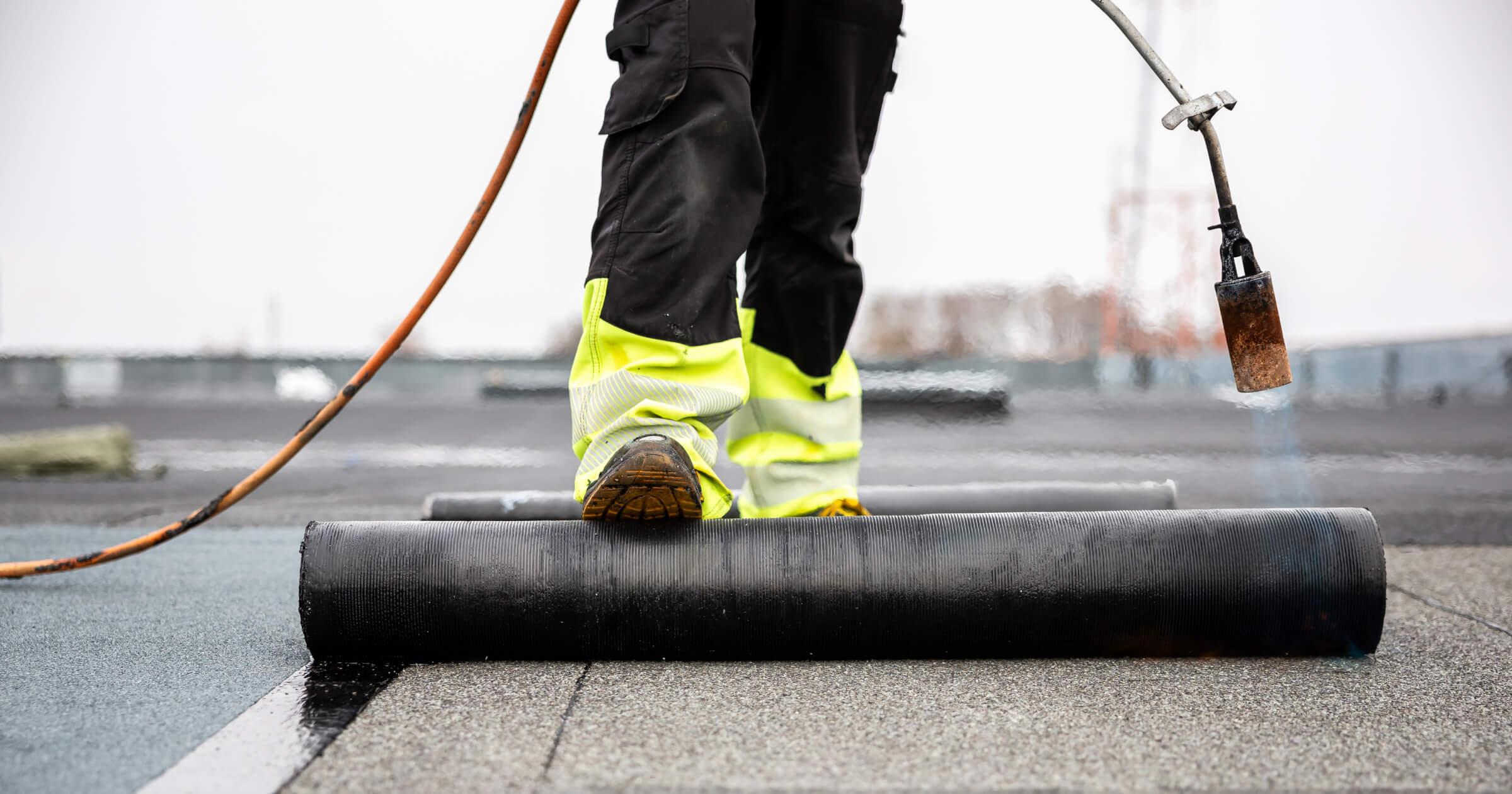Picture this: Your new HVAC sales rep just finished month 4 of training and still can't have a productive conversation with a prospect. When they finally get on the phone, they're asking basic questions about building systems that any experienced rep would know.
The prospect can tell immediately that they're dealing with someone new, and the conversation ends quickly.
This scenario plays out across hundreds of commercial services companies every week. A deeper dive into industry data shows that the average sales rep takes 3.2 months just to reach basic productivity, with some taking 12 months or more to become top performers. 41% of companies report ramp times of 5+ months, and nearly 50% of sales leaders report that new hires quit because onboarding was “too stressful,” according to Entrepreneur Magazine.
The cost isn't just financial - paying a full salary for 6+ months before seeing any real sales results hurts the bottom line - but it’s not just the money. Slow ramp times kill team morale, hurt territory coverage, and give competitors a head start with prospects in your market.
This is where Property intelligence solutions like Convex can make a significant difference in sales onboarding. Instead of spending months learning territories and building confidence through trial and error, new reps can have warm conversations within their first month.
Here's how leading commercial services teams are cutting onboarding from 6+ months to 90 days or less.
The Hidden Cost of Slow Sales Onboarding

Most sales leaders focus on the obvious costs of slow onboarding - salary and benefits paid before productivity. But the hidden costs often exceed the visible ones, creating compounding effects that hurt the entire sales organization.
The Financial Reality
The numbers are sobering. The average cost to replace a sales rep is $97,690 when you factor in recruitment costs, training, and lost revenue. With average ramp times of 3.2 months for SDRs and 4.9 months for account executives, you're paying full compensation for at least a quarter, sometimes nearly half a year, before seeing meaningful productivity.
For a commercial services team paying $80,000 annually per rep, that's $26,000-$32,000 in salary costs alone before the rep becomes productive. Add benefits, training costs, and manager time, and you're approaching $50,000 per rep just to reach baseline productivity.
The Morale and Confidence Crisis
Slow onboarding doesn't just cost money - it destroys confidence. New reps who struggle to have productive conversations with prospects quickly lose motivation. They know they're not contributing, prospects can sense their inexperience, and the psychological pressure builds with each awkward call.
Research shows that employees who don't reach their first performance milestone within 90 days are significantly more likely to quit. In sales, this often means reps who can't close their first deal within three months start looking for other opportunities… whether they tell you or not.
The Territory Coverage Problem
While new reps struggle to get up to speed, territories go undercovered. Prospects in those areas either aren’t contacted or receive calls from unprepared reps who can't speak with confidence about their specific needs. This creates opportunities for competitors while damaging your company's reputation in the market.
The competitive impact compounds over time. Every month a territory is undercovered is market share that's harder to reclaim later.
Why Traditional Onboarding Takes So Long

Traditional sales onboarding follows a predictable pattern: product training, sales process education, territory assignment, and then months of trial-and-error prospecting. This approach works for simple products but fails spectacularly in commercial services, where building-specific knowledge is power.
The Prospect Research Bottleneck
But the biggest bottleneck in commercial services onboarding isn't just product knowledge - it's prospect research. New reps need to understand not just what they're selling, but why specific buildings need their services right now.
Traditional territory research means manually investigating:
Building age, size, and systems
Recent permits and construction activity
Property management companies and decision-makers
Current service providers and contract timing
Compliance requirements and deadlines
This research can take more than two hours per prospect. For a new rep trying to build a pipeline of 50 qualified prospects, that's 75-100 hours of research before they can make their first productive calls.
The Information Overload Problem
Most onboarding programs dump massive amounts of generic information on new reps: product specifications, pricing sheets, competitive comparisons, and general sales methodologies. But none of this helps a rep understand why the medical office building on Fifth Street needs HVAC services right now.
Generic training creates reps who can recite product features but can't have contextual conversations about prospects' specific needs or situations. They end up sounding like they're reading from a script because, essentially, they are.
The Confidence Gap
This is where the real challenge shows up. Confidence. For many reps, the biggest hurdle may not even be a knowledge gap - it may be the confidence to intelligently walk prospects through how your products relate to their challenges.
New reps need to believe they can add value in every conversation, not just pitch services. This confidence only comes from understanding prospects' specific situations better than prospects understand them themselves.
Without building-specific insights, reps spend months feeling like they're bothering prospects rather than helping them. This mindset shows in their tonality, affects their persistence, and ultimately determines their success or failure.
Property Intelligence: The Onboarding Accelerator

Convex’s property intelligence software transforms onboarding by giving new reps instant access to the building-specific knowledge that traditionally takes months to acquire. Instead of learning territories through trial and error, reps start with expert-level insights about every prospect.
How Property Intelligence Works for Onboarding
Instead of overwhelming new reps with 4-5 different tools to find warm leads, property intelligence platforms like Convex give them a systematic approach to territory mastery through actionable workflows:
Start with Buyer Intent Signals: New reps log into Convex and check the "Signals" category - buyer intent data that shows who's actively researching services in their market. These signals provide intent scores based on various factors, helping reps prioritize high-value prospects who are ready to buy rather than randomly cold calling prospects.
Search for Qualified Properties and Contacts: Reps can then search for properties, accounts, and contacts that align with their services - whether it's a specific property type (hospitals, office complexes), individual decision-makers, or account names. Convex's property intelligence includes permit histories, building age, square footage, ownership details, tenant information, and transaction data, making it easy to identify qualified opportunities.
Access Building-Specific Intelligence: What makes this approach unique for commercial services is the depth of property-level data. New reps can see permit history, aerial views, and detailed equipment information, including service history and warranties. This allows them to predict when properties may need services and understand the competitive landscape before making contact.
Generate Personalized Outreach Instantly: With just two clicks, reps use Generative AI trained on buyer signals, property data, and company information to create personalized emails or phone scripts. Instead of generic cold calls, new reps can reference specific building factors that make their services relevant right now.
Manage Follow-ups and Pipeline: After initial outreach, reps set up follow-up reminders and track leads through integrated CRM functionality or sync with existing systems like Salesforce or HubSpot, ensuring no opportunities fall through the cracks.
This systematic approach transforms new reps from uncertain cold-callers into lead generation machines - even if the product knowledge takes a bit longer to grasp. But with property-level building insights, new reps can more easily become confident consultants who can discuss prospects' specific situations from their very first conversations.
The Context Advantage for New Reps
The most powerful aspect of property intelligence for onboarding is context. New reps can reference specific, current factors that make their services relevant to each prospect:
Without property intelligence: "Hi, this is Sarah from ABC HVAC. I wanted to see if you might be interested in learning about our maintenance services."
With property intelligence: "Hi, this is Sarah from ABC HVAC. I noticed your downtown office building just received permits for a 15,000 sq ft expansion. With the additional load on your current HVAC system, I wanted to discuss maintenance protocols that prevent emergency breakdowns during peak occupancy."
The second approach works because it demonstrates an understanding of the prospect's specific situation. Even though Sarah is new, she sounds like an expert because she has expert-level information.
Territory Mastery in Days, Not Months
Traditional territory learning requires months of driving around, researching buildings, and gradually understanding market dynamics. Property intelligence provides instant territory mastery through visual mapping and comprehensive property data.
In fact, Convex’s tool makes territory mapping so simple that you can literally outline a territory to work, and see all of the commercial buildings within the boundary.
New reps can now see their entire territory on a map, with each building color-coded by opportunity level based on current service indicators. They understand immediately which prospects to prioritize and why, eliminating the guesswork that extends traditional ramp times.
Building Confidence Through Knowledge
Confidence comes from competence, and competence comes from having better information than prospects expect. While property intelligence solutions can’t train your people on your products, they can give new reps the building-specific insights they need to add value in every conversation, not just pitching services.
When reps know as much or more about prospects' buildings as prospects themselves, conversations become consultative rather than promotional. This shift in dynamic accelerates relationship building and shortens sales cycles - key factors in rep confidence and early success.
Case Study: Comfort Systems Cuts Ramp Time by 70%

Comfort Systems USA Southwest provides commercial HVAC services across Arizona and New Mexico. Despite being a multimillion-dollar company, they faced a classic scaling challenge: how to onboard new reps quickly enough to capture their $100 billion market opportunity.
The Traditional Onboarding Challenge
Before implementing property intelligence, Comfort Systems followed the standard commercial services onboarding model. New reps spent weeks learning products and processes, then began the slow process of territory research and prospect identification.
"Traditional prospecting was a process that sometimes would take two days (each week) just to fill the pipeline,” according to Sales Consultant Joel Martos. New reps spent even longer, often requiring 6-9 months to reach full productivity.
This extended ramp time created multiple problems:
High salary costs before productivity
Frustrated new hires questioning their career choice
Under-covered territories losing opportunities to competitors
Difficulty attracting experienced reps who wanted faster success
The Property Intelligence Solution
Comfort Systems chose Convex because it solved the core onboarding challenge: giving new reps instant access to the building-specific knowledge that traditionally took months to acquire.
"Convex let us run a search by the size of the building and by whether it was owner-occupied, which were the best indicators of whether a customer would be a good fit," explains Sales Director Brian Ruffner. "But more importantly, it allowed sales consultants to see what other work had been done in buildings they were considering contacting."
This building-specific intelligence transformed new rep conversations from generic pitches to expert consultations.
Dramatic Results: Lowering Ramp times from 6-9 Months to 2-3 Months
The impact on onboarding was immediate and measurable. "Before Convex, we would figure a six- to nine-month window to get a new rep up and running," Ruffner explains. "But since Convex gets them talking to the right people right away, we've reduced that window to just two to three months."
This 70% reduction in ramp time created multiple benefits:
Financial Impact: Faster productivity meant quicker ROI on new hires and reduced salary costs before contribution.
Competitive Advantage: New reps could capture opportunities immediately instead of learning territories while competitors won deals.
Recruitment Tool: "People are looking for companies that can provide them with better technology and better resources to help them become successful more quickly," Ruffner notes. Property intelligence became a recruiting differentiator.
Scalable Growth: The accelerated onboarding enabled rapid team expansion, supporting Comfort Systems' goal to more than double in size over four years.
The Confidence Factor
Beyond the time savings, property intelligence gave new reps the confidence to have productive conversations immediately. "I only have to prospect for two, three, four hours a week, and I know exactly who to go after," says Joel Martos. "Plus, I can get right to the nitty-gritty with targeted questions on the first call."
This confidence acceleration was perhaps the most important factor in reducing ramp time. When new reps believe they can add value from day one, they engage more confidently with prospects and see faster results.
The 90-Day Onboarding Framework
Leading commercial services companies are implementing structured 90-day onboarding frameworks that leverage property intelligence to accelerate rep productivity. Here's the proven approach that's cutting ramp times by 60-70%:
Month 1: Foundation and Territory Intelligence
Week 1-2: Company and Product Foundation
Company culture, values, and market positioning
Core product/service knowledge and competitive differentiation
Sales process overview and CRM training
Introduction to a property intelligence platform to find deals
Week 3-4: Territory Mapping and Intelligence Training
Complete territory mapping using property intelligence tools
Identify qualified prospects based on ICP and building characteristics
Learn to read building profiles, permit data, and buying signals
Practice crafting property-specific outreach messages
Month 1 Success Metrics:
Territory mapped with 100+ qualified prospects identified
Ability to explain services in the context of specific building needs
The first 10 prospect calls show “completed” with building-specific talking points
Month 2: Guided Prospecting and Skill Development
Week 5-6: Guided Outreach
Begin prospecting with mentor oversight
Focus on prospects with the strongest buying signals
Practice property intelligence-driven conversations
Daily coaching sessions on call performance
Week 7-8: Independent Prospecting with Support
Take full ownership of prospect outreach
Schedule 20+ meetings based on property intelligence insights
Begin working deals through the sales process
Weekly coaching sessions and performance review
Month 2 Success Metrics:
20+ meetings scheduled with qualified prospects
3-5 active opportunities in the pipeline
Demonstrated ability to conduct expert-level prospect conversations
Month 3: Optimization and Independence
Week 9-10: Process Refinement
Optimize prospecting approach based on early results
Develop a personal territory coverage strategy
Focus on advancing pipeline opportunities
Peer learning sessions with experienced reps
Week 11-12: Full Independence
Complete ownership of territory and pipeline
Quota accountability begins (often at a reduced level)
Continued coaching but reduced frequency
Focus on closing first deals
Month 3 Success Metrics:
The first deal closed or in the final stages
Consistent pipeline generation
Territory coverage matching experienced rep levels
Confidence in independent prospect conversations
Success Factors for 90-Day Onboarding
Property Intelligence as Foundation: Every aspect of training centers around building-specific knowledge rather than generic product information.
Context-Driven Learning: New reps learn by working with real prospects who have actual service needs rather than role-playing hypothetical scenarios.
Confidence Building Through Knowledge: Superior building intelligence creates immediate credibility with prospects, accelerating relationship development.
Measurable Milestones: Clear metrics at each stage ensure reps stay on track and managers can identify issues early.
Ongoing Support: Reduced ramp time doesn't mean reduced support—it means more focused, effective support based on real prospect interactions.
Conclusion
The difference between 6-month and 90-day onboarding isn't just time - it's a competitive advantage. Teams that can get new reps productive in 90 days capture more market opportunities, reduce hiring costs, and build stronger sales cultures.
Property intelligence makes this acceleration possible by giving new reps instant access to the building-specific knowledge that traditionally takes months to acquire. Instead of learning through trial and error, they start with expert-level insights about every prospect in their territory.
The ROI is compelling: faster productivity, reduced turnover, improved territory coverage, and the ability to scale teams quickly when market opportunities emerge. But the real advantage is cultural—teams, where new reps succeed quickly, create positive momentum that attracts better talent and drives sustained growth.
Bottom line: In commercial services, territory knowledge is everything. Property intelligence gives new reps that knowledge immediately, cutting onboarding time by 60-70% while building the confidence they need for long-term success.
Ready to accelerate your sales onboarding? Schedule a demo to see how Convex's property intelligence platform can transform your new rep productivity and cut ramp times to 90 days or less.
Share





